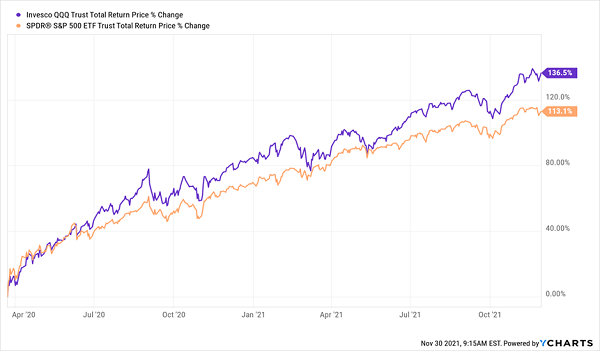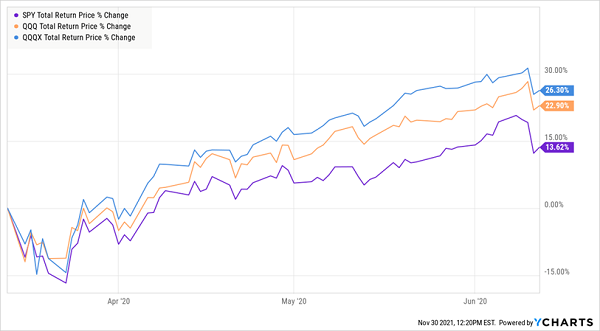The Omicron variant is here; what does it mean for us dividend investors? asks closed-end fund specialist Michael Foster, investment strategist at CEF Insider.
Simple. We'll simply do the same thing we did the last time COVID spooked markets: buy tech-focused closed-end funds (CEFs) with huge payouts!
If governments around the world institute new shutdowns, the last sector to suffer will be tech. Remember that tech was a beacon for investors throughout the pandemic, with the benchmark Invesco QQQ Trust (QQQ) eclipsing the S&P 500 coming out of the March 2020 crash.

If Omicron is bad enough to bring back lockdowns, tech will be less affected because lockdowns leave people more dependent on technology for the basics in life. And if Omicron turns out to be not as bad as scientists are worried it may be, tech still stands to gain, because it has become an increasingly integral part of our everyday lives.
If you're looking to play the rise of tech and still hedge against volatility, consider a closed-end fund called the Nuveen Nasdaq 100 Dynamic Overwrite Fund (QQQX).
This 6% yielder gets you exposure to the same stocks in the NASDAQ 100 index — large caps like Apple (AAPL), Microsoft (MSFT) and Alphabet (GOOGL) — but with a twist: QQQX sells call options (contracts giving buyers the option to buy its holdings in the future at a higher price) on its portfolio in exchange for cash, which it then hands off to investors.
Those option contracts' value goes up when volatility rises, which is why QQQX beat all of the indexes from the very start of the selloff to a few weeks later, when markets began to adjust to the new COVID reality.

This chart above demonstrates why selling and going to cash in a panicked market is the worst thing you can do. Instead, we want to capitalize on a pullback while hedging our returns with high dividends and smart approaches like QQQX's option-selling strategy, which performs best in stormy markets.
That makes QQQX a good way to play the Omicron wave — at least for a short while until we know whether it's really going to be disruptive or not.










